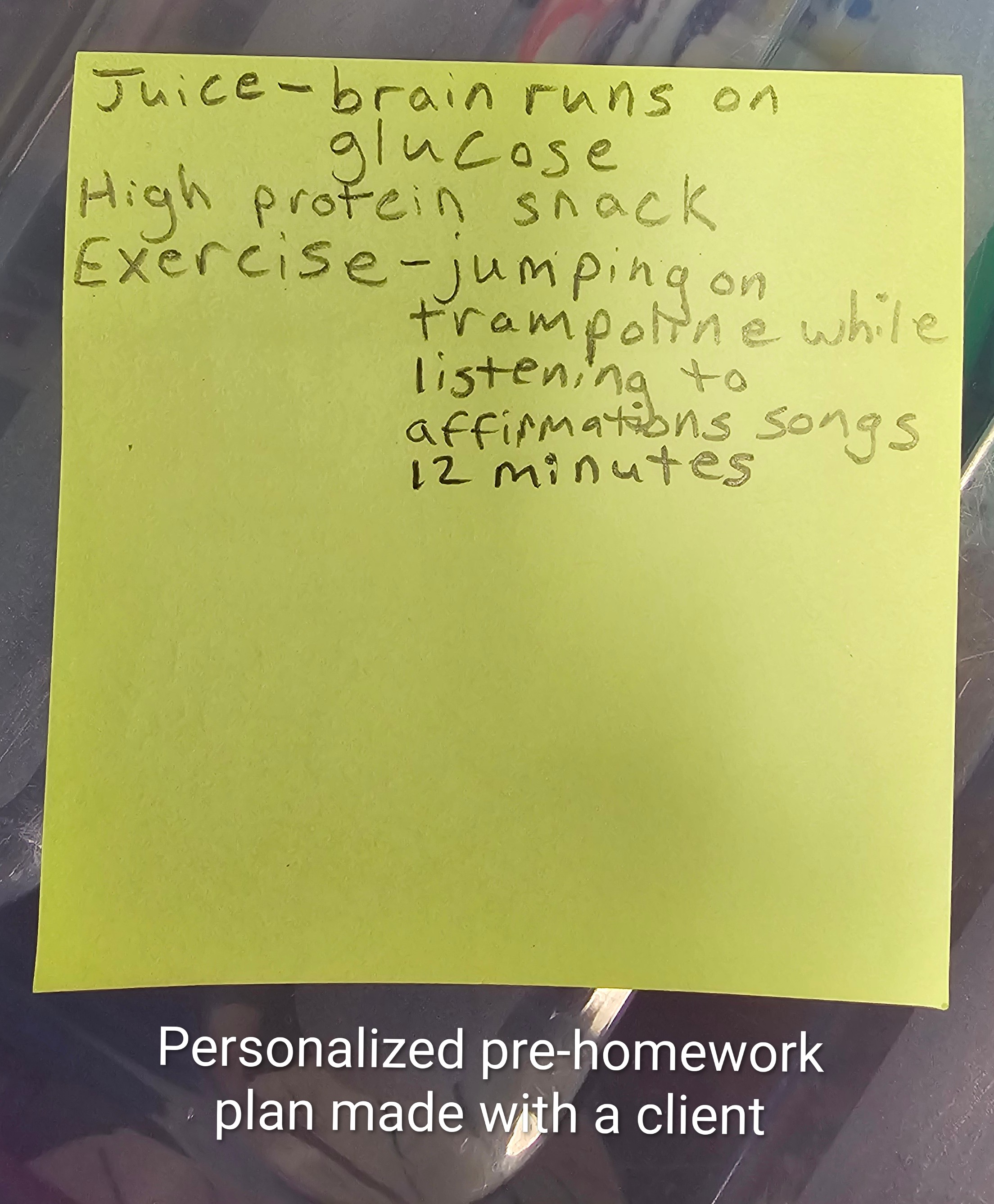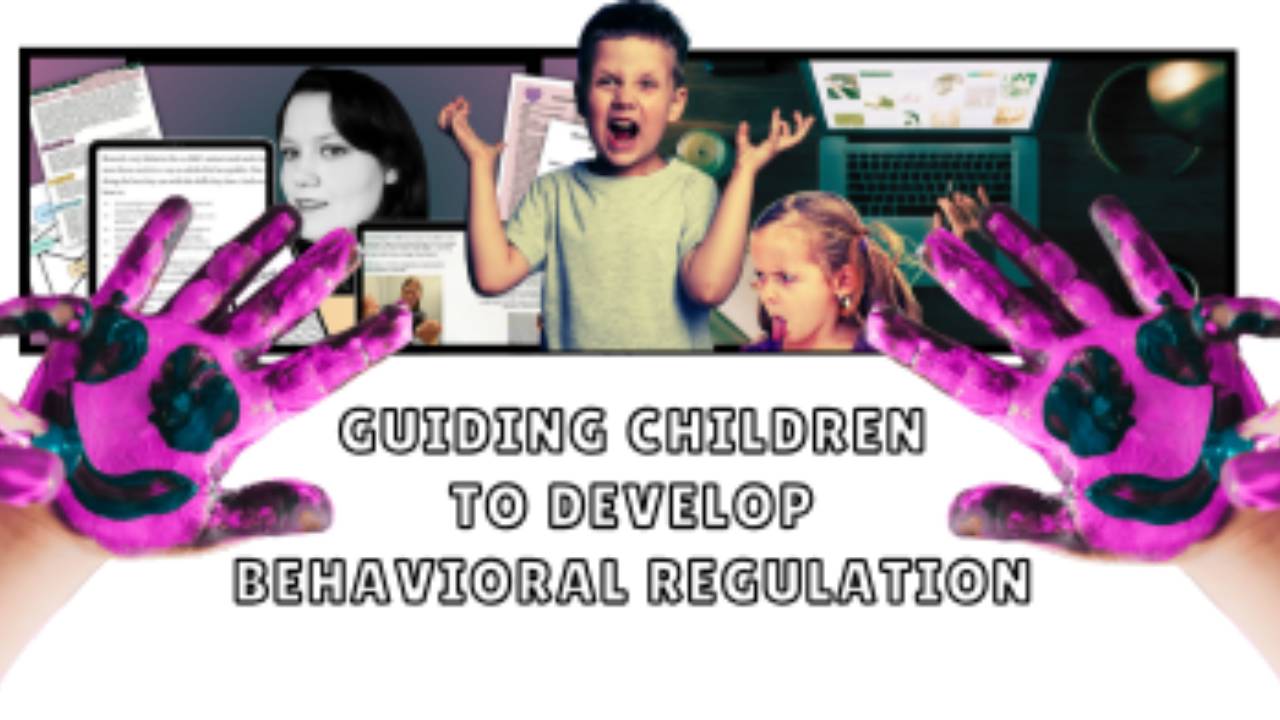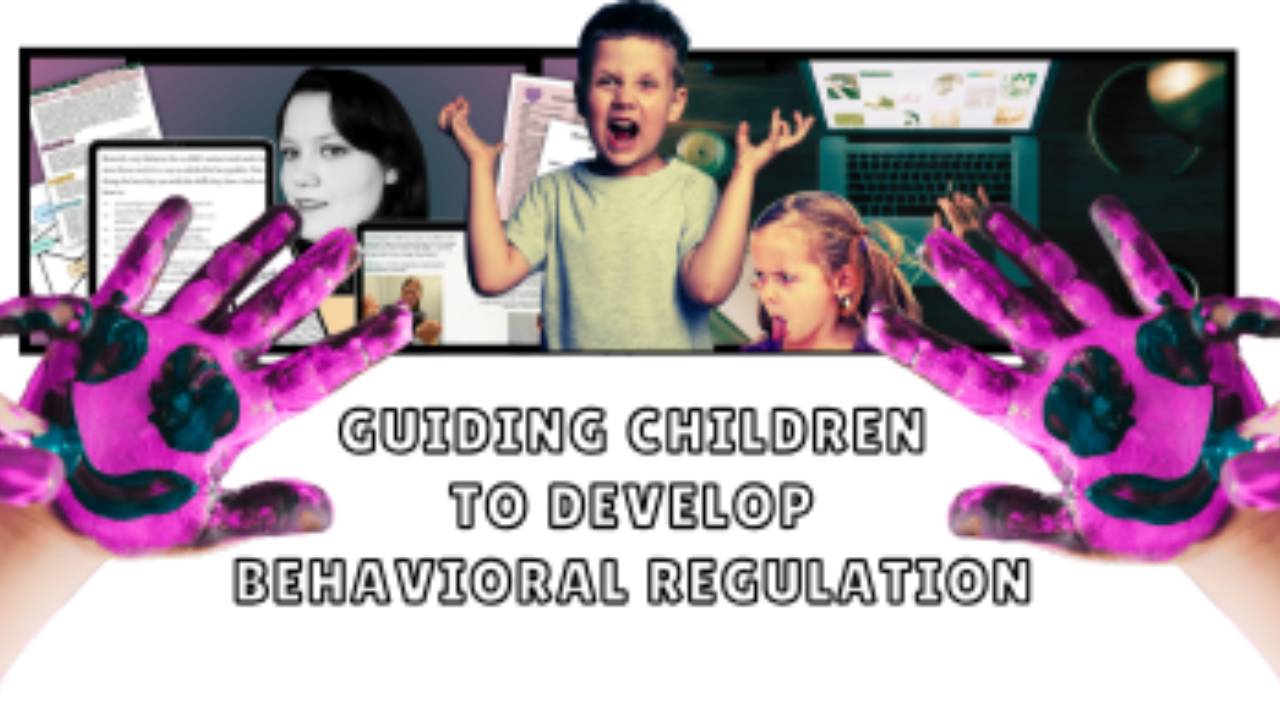Afterschool Restraint Collapse: 5+ Tips For Preventing After School Meltdowns
Jan 29, 2025One day, my daughter came home from school, dropped her backpack like it was a hot potato, and dramatically flopped onto the couch. With the flair of a seasoned actor, she sighed deeply and declared, “Mom, I used up all my good behavior at school. There’s none left for home!”
This is a completely made up story based on an amalgamation of real events. In reality it looked more like her having a screaming meltdown when trying to do her homework. If only she had the insight and communication skills to tell me she was burnt-out with her words instead of her behavior. It would have been so much easier to know how to help her!
After-school restraint collapse happens when children release all the emotions they held in throughout the school day. This article explains why it happens and offers sensory-informed, neurodiversity-affirming strategies to make after-school transitions calmer and more connected.
Author Devina King, B.A. Psy, MSOTR/L, ASDCS, ADHD-RSP Last updated 01/26/2026
Table of contents
- What is after-school restraint collapse
- Why masking leads to meltdowns
- Strategies to support your child
- FAQ
What is after-school restraint collapse
It can feel confusing and discouraging when your child seems to hold it together all day at school, only to crumble the moment they walk through the door. After-school restraint collapse describes the moment when kids (neurotypical and neurodivergent) finally release the emotional steam they have been holding in all day. At school, they are constantly regulating sensory input, masking autistic or ADHD-related traits, navigating social expectations, and meeting academic demands. Once they step through the door, that built-up pressure lets off steam, resulting in irritability, emotional crashes, or full-blown meltdowns.
Takeaway After-school restraint collapse is a release of emotional overload, not misbehavior or lack of respect.
Why masking leads to meltdowns
When children spend their day trying to fit in or avoid standing out, it can quietly drain their energy and coping reserves. Masking is the effort to hide or suppress natural behaviors, expressions, or sensory needs to fit in or avoid drawing attention. For many autistic children and those with ADHD, masking can look like:
-
Smiling when overwhelmed
-
Silencing stims (hand-flapping or fidgeting)
-
Forcing eye contact or pausing sensory breaks
Each moment spent masking drains emotional energy. By late afternoon, there is nothing left to maintain self-control, so the meltdown happens.
You can learn more about the three stages of meltdowns and a 4 step framework for responding to any meltdown here.
Takeaway Masking uses up emotional and sensory resources, making after-school meltdowns a predictable release rather than a behavioral choice.
Strategies to support your child
Wanting calmer afternoons and more connection after school is completely understandable, and small changes can really help your child feel safer and more regulated. Here are some tips with ways to customize them for your child’s unique sensory profile, whether they are autistic, have ADHD, or simply need a gentler after-school transition.
Takeaway Thoughtful adjustments to routines, environments, and communication can make after-school time more peaceful for everyone.
Environmental adjustments
Many children need a soft landing after being in a busy, demanding school environment all day. Setting up your home environment to support decompression can make those first moments after school feel less overwhelming.
-
Create a comfortable space Designate a low-stimulus landing zone. For autistic children, consider soft lighting, noise-dampening headphones, and weighted blankets. For kids with ADHD, include a small fidget basket or a standing desk option.
-
Limit stimuli (or provide the right type) Reduce visual clutter, mute background media, or play calming music. Some children focus better with background noise. When I was a kid my mom would tell me I could not focus to do my homework if the TV was on. I remember one day I yelled back at her “I cannot focus if it is not on.” That was the beginning of me learning to advocate for meeting my sensory needs.
-
Provide hydration and healthy snacks Keep water and protein-rich snacks within reach. Autistic children may prefer crunchy or chewy textures; kids with ADHD often respond well to varied flavors.
Takeaway A calm, predictable landing zone with supportive sensory choices helps your child shift out of school mode more gently.
Routine and transition strategies
Transitions from school to home can feel jarring, especially when children are already running on empty. Gentle, predictable routines give their nervous system a sense of what comes next, which reduces anxiety and resistance.
-
Establish an after-school routine A predictable sequence such as snack, downtime, homework brings security. Visual schedules help autistic children anticipate each step; timers or alarms can cue kids with ADHD to move between activities.
-
Allow downtime and gradual transitions Block 10–15 minutes between arriving home and any demands. A quick backyard break or a few minutes of deep breathing eases the shift from structured school to unstructured evenings.
-
Set up a homework routine Use clearly defined workspaces, breaks every 15–20 minutes, and checklists. Offer choices like “Do you want to start with math or reading” to empower your child and honor differing executive-function needs. Learn how to support the ADHD medication crash here.
Takeaway Consistent routines and built-in buffer time make after-school transitions feel safer and more manageable.
Emotional and communication support
When children come home overwhelmed, they often need connection and understanding more than questions or problem-solving. Supporting their emotional world helps them feel safe enough to share what the day was really like.
-
Encourage open communication Invite your child to share feelings without judgment. Offer sentence starters like “I feel ______ when ______” so even children who struggle with words can pinpoint their experience.
-
Model relaxation techniques Demonstrate deep breathing, progressive muscle relaxation, or simple stretches. Practice together when everyone is calm so these tools are ready in high-stress moments.
-
Avoid overloading with questions Resist rapid-fire “How was your day” sequences. Instead, ask one open-ended question after they have had time to decompress.
-
Respect personal space Some children need a hug; others need a closed-door retreat. Let your child choose how they want to be supported physically and emotionally.
Takeaway Gentle, low-pressure communication helps your child feel seen and supported rather than overwhelmed.
Sensory-friendly tools and activities
Many children regulate their emotions through movement, sensory input, or quiet, focused activities. Offering sensory-friendly options gives them safe ways to release tension and reconnect with themselves. Sensory strategies can include proprioceptive input such as deep pressure and heavy work, linear vestibular input such as gentle back and forth movement, calming auditory input, and tactile or visual supports that help the nervous system settle.
- Engage in relaxing activities Suggest drawing, reading a favorite book, or listening to a specific playlist. Autistic children might seek sensory arts like clay, kinetic sand, or water beads. Children with ADHD often benefit from quick, active breaks such as a short dance routine or a one minute movement challenge. You can also offer calming music with predictable rhythms, nature sounds, or soft instrumental tracks. Provide options like dim lighting, a quiet corner, or noise reducing headphones to reduce sensory overload. Slow linear vestibular input such as rocking in a rocking chair, swinging gently front to back, lying in a hammock, or sitting on a therapy ball while moving slowly can help the body shift into a calmer state. Parents can make this playful by joining in. Sit together and draw side by side, take turns choosing songs, or create a shared playlist. Try a “copy me” movement game where the child leads and the parent mirrors their slow, calming motions.
- Offer a transitional object A weighted lap pad, fidget toy, or cozy stuffed animal can act as an emotional anchor during meltdown moments. Deep pressure items such as weighted blankets, compression clothing, or a snug hoodie provide proprioceptive input that helps many children feel grounded. Soft tactile items such as textured fidgets, squishy balls, putty, or fabric swatches can offer soothing sensory feedback. Allowing the child to choose their preferred object increases its effectiveness. Parents can connect by offering these items in a warm, playful way. For example, say “Which helper should we pick today” and let the child choose between two calming objects. You can also create a small ritual such as placing the weighted item together and taking a slow breath at the same time.
- Promote physical activity Light exercise such as walking the dog, tossing a ball, or doing jumping jacks helps dissipate built up tension. Tailor intensity to your child’s sensory profile. Proprioceptive heavy work activities such as pushing a laundry basket filled with books, carrying groceries, doing wall push ups, crab walking, or pulling a resistance band can be especially regulating. Linear vestibular movement such as slow swinging, gentle bouncing on a therapy ball, marching in place, or walking in a straight line while focusing on breathing can help organize the nervous system. For children who need more active input, brief bursts of running, climbing, scooter board play, or trampoline jumping can reset their energy and focus. Parents can make this playful by turning activities into simple games. Try “push the parent” where the child pushes against your hands for deep pressure, “animal walk races” where you both choose silly animals, or “laundry basket delivery service” where the child pushes the basket to different rooms while you pretend to place orders. For linear vestibular input, you can gently pull the child on a blanket across the floor, rock together in a chair, or take turns swinging while telling short stories.
Takeaway Sensory tools and movement give your child safe outlets for releasing the stress they carry home from school. Thoughtfully chosen sensory strategies help them regulate their bodies, process emotions, and transition more smoothly into the rest of their day. Parents can strengthen connection by joining in, following the child’s lead, and making sensory moments feel playful and shared rather than corrective or demanding.
Collaborative planning and coordination
Children feel more in control and less defensive when they are included in decisions about their routines and supports. Working together with your child and their school team builds a more consistent safety net across environments.
-
Involve the child in planning Let them choose snack options, décor for their chill-out nook, or the order of after-school activities. Ownership builds self-efficacy and reduces resistance.
-
Coordinate with school Share observations with teachers or occupational therapists. Identify specific triggers such as noisy cafeterias or crowded hallways so plans can be put in place before the collapse happens.
-
Celebrate achievements and set realistic expectations Acknowledge even small wins such as completing a math problem or walking calmly through the parking lot. Adjust expectations rather than pushing for immediate compliance.
Takeaway Collaboration builds confidence and reduces after-school stress.
FAQ
What exactly is after-school restraint collapse?
After-school restraint collapse is when children release pent-up emotions after a long day of holding it together at school. They may cry, yell, act out, or become unusually quiet once they are in a safe space like home.
Why does my child behave perfectly at school but melt down at home?
Kids often use all their emotional energy to meet expectations at school. Once they are home, their emotional backpack is full, and they let it all out where they feel safest.
Is this normal, or should I be worried?
It is very common and not necessarily a sign of a deeper issue. If meltdowns are extreme or interfere with daily life, it may help to consult a pediatrician or therapist.
What age group does after-school restraint collapse affect most?
It is most common in younger children ages 4–10, but older kids and teens can experience it too, especially if they mask stress or anxiety during the day.
What can I do to prevent or reduce after-school meltdowns?
Give children space to decompress, offer a snack and quiet time before homework or chores, create predictable routines, and use movement or sensory play to help them release stress.
Should I discipline my child for after-school meltdowns?
No. This behavior is usually emotional exhaustion, not defiance. Respond with empathy and support.
How can I talk to my child about after-school restraint collapse?
Wait until they are calm, then gently name the behavior and validate their feelings. For example, you might say, “It seems like school was really hard today. Do you want to talk about it later or just have some quiet time first.”
About Devina King, B.A. Psy, MSOTR/L, ASDCS, ADHD-RSP
Devina is an autistic occupational therapist, parenting coach, author, and credentialed autism and ADHD specialist with over 17 years of experience working with children, specializing in behavioral regulation and neurodivergence. As both a clinician and a parent, she combines professional expertise with personal experience parenting neurodivergent children who previously struggled with behavioral disorders. This unique perspective allows her to bridge the gap between science and real-world application, offering compassionate, evidence-based behavior treatment strategies that empower children to thrive.
You can learn more about Devina's credentials, lived experience, and approach here.
Publications
Devina has written many books. Her book From Surviving to Thriving: The Art and Science of Guiding Children to Develop Behavioral Regulation provides actionable insights for parents, educators, and professionals looking to support children in building essential self-regulation skills. Devina is an AOTA approved professional development provider. Reviewers praise her work for her comprehensive, refreshing, practical, and compassionate approach that takes complex psychological concepts and evidence-based approaches and breaks them down into ideas anyone can understand and apply. Devina has been included in publications such as this article in Psychologist Brief and this article in Doctors Magazine. Stop by her store to explore her latest resources, workshops, CEUs, and parent coaching sessions designed to help children succeed in their behavioral development journey.


